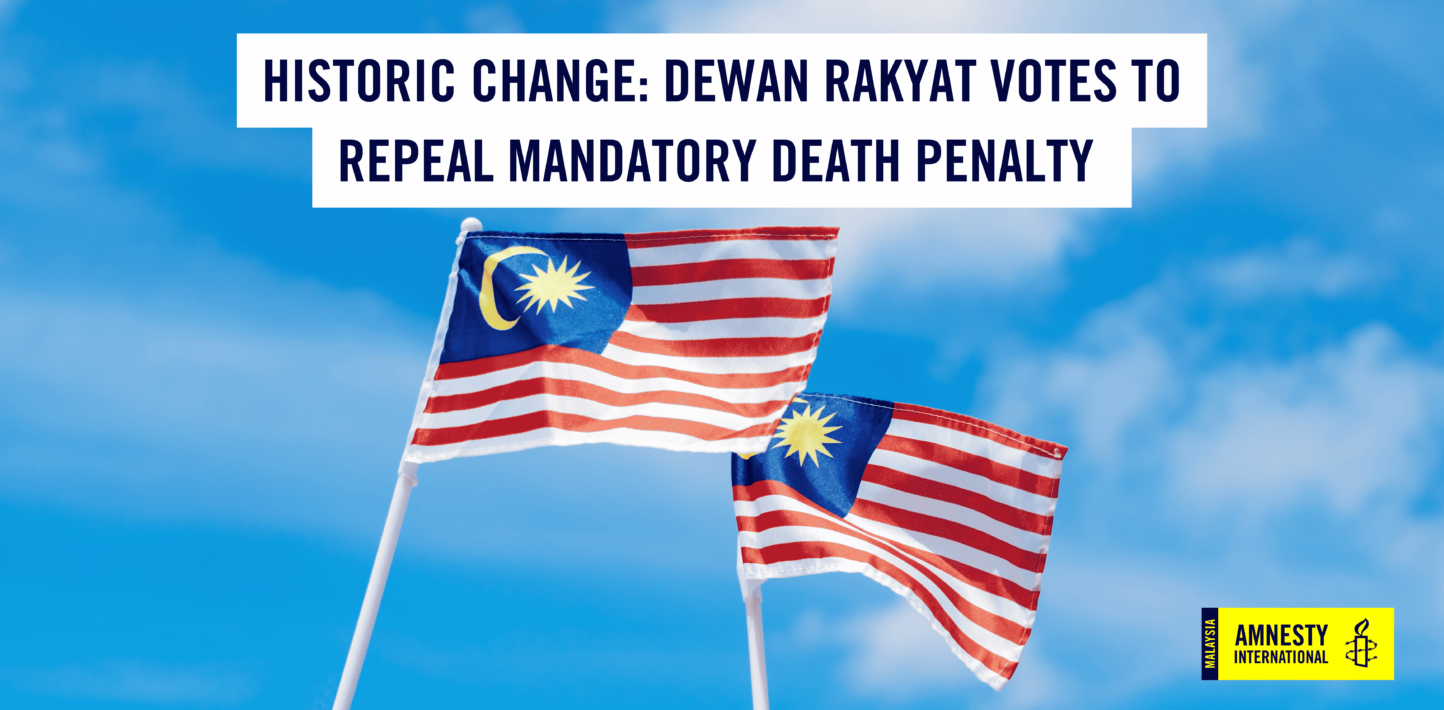3 April 2023
Responding to the repeal of the mandatory death penalty at the Dewan Rakyat (House of Representatives) in Malaysia, Amnesty International Malaysia’s Executive Director Katrina Jorene Maliamauv said:
“Today’s vote has been a long-time in the making, and while there is still more to be done, it lays the foundations for further reform that must put human rights and fair trial proceedings front and centre.
These historic measures will repeal the mandatory death penalty in full; reduce the number of offences for which the death penalty is at all applicable; and establish a resentencing process for those already sentenced to death.
All eyes are now on Malaysia’s Senate to take the next steps and make these reforms a reality. Once these changes are enshrined in law, those applying for resentencing must be provided adequate time, resources and access to legal representation, as well as the right to appeal any decision. The moratorium on executions, which has been in place since 2018, must also be maintained until the death penalty is fully abolished and all death sentences are commuted.
The death penalty is the ultimate cruel, inhuman and degrading punishment. It is a violation of the right to life. But this move shows human rights progress is possible. The global trend towards abolition remains unstoppable and while the end of the mandatory death penalty is an important step, it should not be the last. Malaysia can and must swiftly work towards scrapping the death penalty once and for all.”
Background:
On 3 April 2023, two bills relating to the abolition of the mandatory death penalty and revised sentencing guidelines were passed in Malaysia’s Dewan Rakyat (House of Representatives) and are now heading to the Dewan Negara (Senate).
Previously, 12 offences carried the mandatory death penalty in Malaysia, including for drug-related offences, which make up the majority of death penalty cases. The decision by the Parliament would give judges discretion in sentencing.
Amnesty International opposes the death penalty in all cases without exception, regardless of the nature or circumstances of the crime, the guilt, innocence or other characteristics of the offender or the method used by the state to carry out the execution.
For more information please contact: [email protected]


